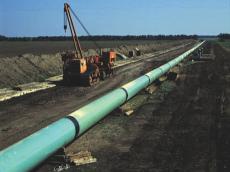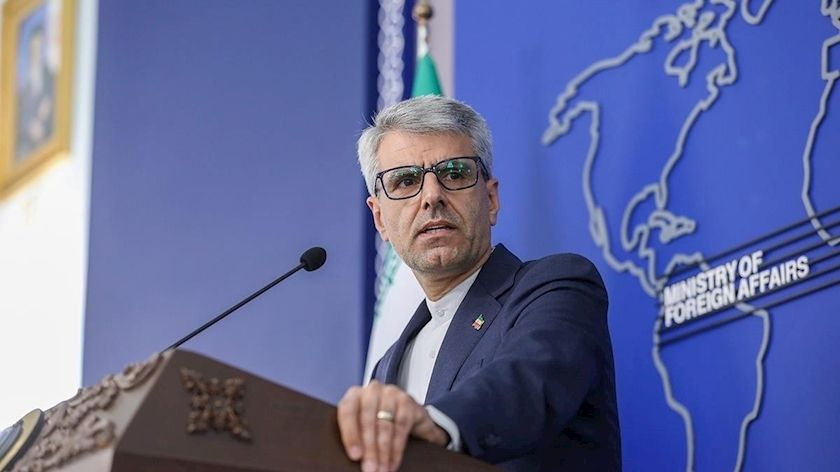|
|
TODAY.AZ / Analytics
Status quo of TAPI gas pipeline project
20 April 2015 [10:30] - TODAY.AZ

The project for construction of the Turkmenistan-Afghanistan-Pakistan-India gas pipeline is currently the most advanced among the other alternatives.
The countries interested in the construction of TAPI pipeline believe that its construction can start in 2015.
The issue of construction of TAPI pipeline was discussed during the recent meeting of Turkmenistan’s President Gurbanguly Berdimuhammadov with India’s Foreign Minister Sushma Swaraj in Ashgabat.
“TAPI is designed to make a significant contribution to the sustainable socio-economic development of Asian countries and in general, allow to strengthen the global energy security by becoming a genuine bridge of peace, friendship and long-term cooperation in the Eurasian continent,” said the message earlier released by Turkmen government.
Currently, all the countries involved in the project should choose the company which will become the leader of the consortium, able to seek financial resources, sign a long term contract and purchase a considerable share in the already established TAPI Ltd.
TAPI Ltd. operating company includes Turkmengaz State Concern, Afghan Gas Corporation, Pakistan’s "Inter State Gas Systems (Private) Limited" and Indian "GAIL (India) Limited" with equal shares.
The parties have already entered into transactions for the sale of gas, sources of raw materials of the pipeline have been defined as well, including Galkynysh, the second largest gas field in the world.
This ambitious project is promoted by the Asian Development Bank (ADB), which plays the role of its transaction advisor.
ADB has long confirmed its commitment to the project. The bank experts believe that the pipeline has enormous potential in the field of not only sub-regional cooperation but also economic development of the region.
Indeed, this pipeline will connect the energy deficient South Asia with Central Asian countries rich in energy resources. It is believed that the project will provide a less expensive and clean energy, make a profit, which can be used to reduce poverty in the region and contribute to the regional stability through joint ownership of the project.
The basic document for the promotion of TAPI project is the Ashgabat interstate agreement of the state parties on the commencement of the practical implementation of the TAPI project signed in late 2010.
The design capacity of TAPI is 33 billion cubic meters of natural gas per year. The estimated length is 1,735 kilometers.
It is expected that the pipeline will extend from the largest gas field in Turkmenistan, Galkhynysh, through the Afghan cities of Herat and Kandahar to the Fazilka settlement on the Pakistani-Indian border.
The estimated cost of the project varies between $7, 6 billion - $10 billion. The issue of ensuring safety of the highway, a considerable part of which passes through unstable Afghanistan, remains an open question.
/By Trend/
URL: http://www.today.az/news/analytics/139962.html
 Print version
Print version
Views: 3913
Connect with us. Get latest news and updates.
See Also
- 15 October 2025 [19:58]
Congress, ANCA, and fragile peace in South Caucasus [Op-Ed] - 13 October 2025 [19:45]
Afghanistan-Pakistan clashes leave scores dead amid rising tensions - 13 October 2025 [08:30]
Between Washington and Middle East, Azerbaijan’s role gains new weight - 10 October 2025 [13:43]
Baku's strategic diplomacy shines at CIS Summit in Dushanbe - 10 October 2025 [08:30]
Why FinTech matters: Unlocking economic growth and financial inclusion in Azerbaijan - 09 October 2025 [13:27]
Ocampo’s double standards: silence on war crimes, loud on bias - 09 October 2025 [08:30]
AZHAB Forum highlights $3T halal economy and ethical SME growth - 08 October 2025 [19:27]
Gabala Summit marks turning point in rise of Turkic geopolitical bloc - 08 October 2025 [08:30]
OTS steps into geopolitical spotlight as Eurasian power centre - 07 October 2025 [15:00]
Azerbaijan shapes future of Turkic cooperation at Gabala Summit
Most Popular
 Why couldn't Azerbaijan not be in Sharm el-Sheikh
Why couldn't Azerbaijan not be in Sharm el-Sheikh
 Azerbaijan, Iran, and Russia adopt communiqué to enhance cooperation on North-South transport corridor
Azerbaijan, Iran, and Russia adopt communiqué to enhance cooperation on North-South transport corridor
 Afghanistan-Pakistan clashes leave scores dead amid rising tensions
Afghanistan-Pakistan clashes leave scores dead amid rising tensions
 Trilateral consultations in Baku highlight regional cooperation agenda - Iranian FM
Trilateral consultations in Baku highlight regional cooperation agenda - Iranian FM
 Revanchists try to gather people again. And money. And it is not known what they need more
Revanchists try to gather people again. And money. And it is not known what they need more
 Kazakhstan seeks long-term oil supply agreements with Azerbaijan
Kazakhstan seeks long-term oil supply agreements with Azerbaijan
 President Ilham Aliyev participates in Middle East Peace Summit
President Ilham Aliyev participates in Middle East Peace Summit
